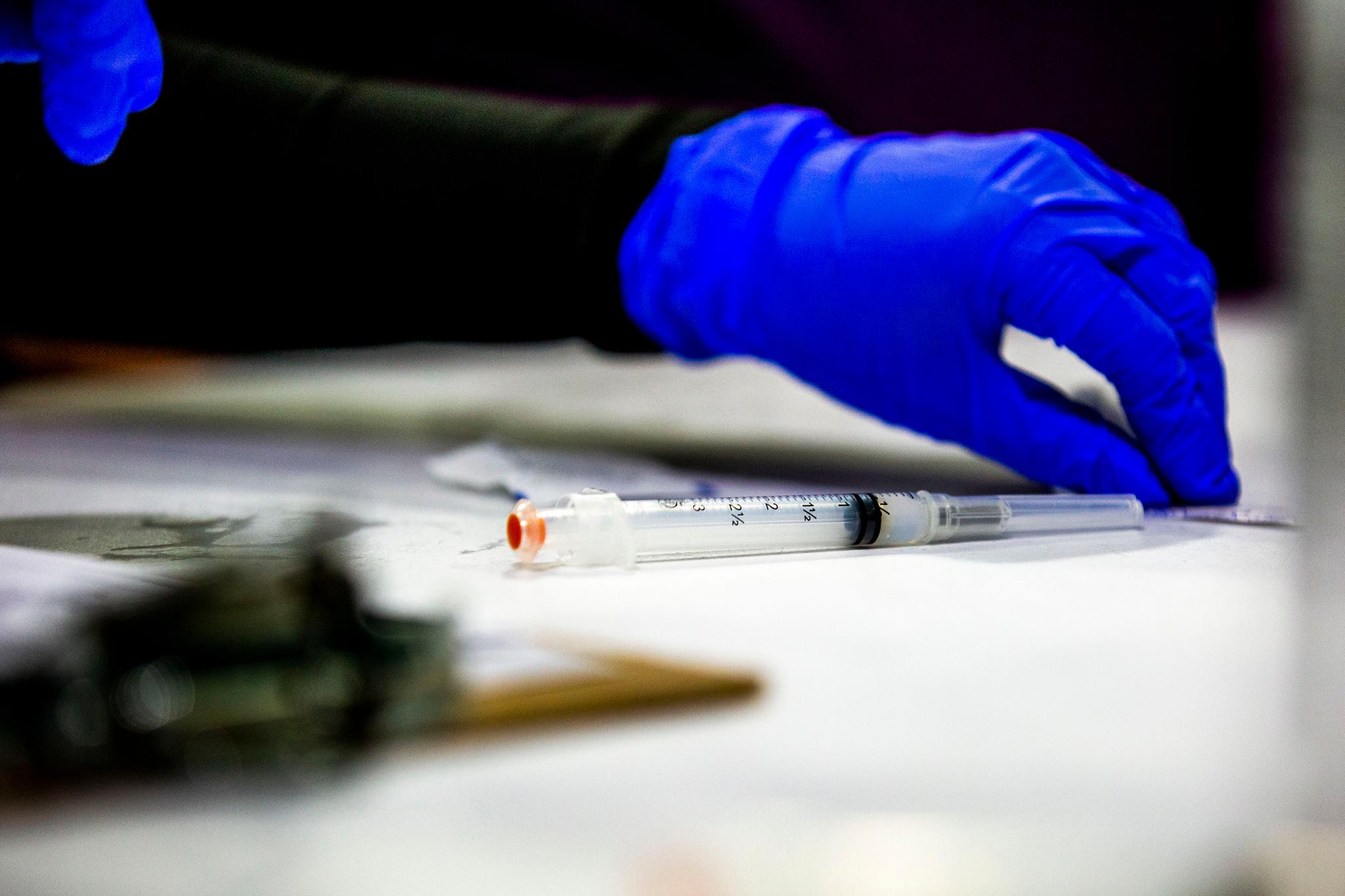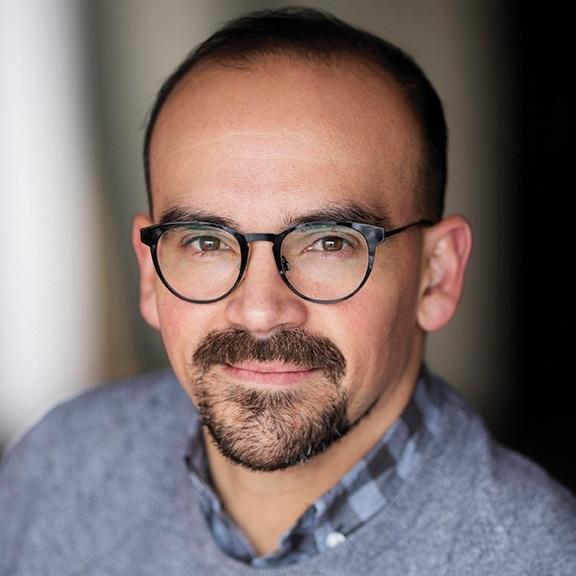
Updated 3:49 p.m.
After pressure from school districts and teachers unions, Colorado Gov. Jared Polis announced Friday that the state's teachers, some support professionals and child care providers will now be eligible to get the COVID-19 vaccine starting on Feb. 8.
Teachers are "foundational for our society to function," Polis said, adding that he was also concerned about the “startling increase in gender disparities in the workplace” with many women dropping out of the workplace because there is no school for their children.
Polis estimated that it will take two to three weeks to vaccinate all the state educators and that he was counting on getting additional vaccine supplies from the federal government in order to make it happen. In addition to public and private pre-kindergarten through 12th grade teachers, the move also includes others who have contact with children in the classroom, like paraprofessionals and "child care workers in licensed child care programs."
Beyond educators, Polis also formalized an earlier decision to expand inoculations to Coloradans from 65 to 69 years old. If the vaccine arrives, it will all begin Feb. 8.
Amie Baca-Oehlert, high school counselor and president of the Colorado Education Association, thanked Polis for listening to educators.
“This is a gigantic step toward our longstanding goal of getting our students back into classrooms, where the best learning takes place,” she said. She called on communities to commit to continuing to follow safety guidelines and do things like wearing masks, washing hands, social distancing and limiting gatherings.
“Especially with more contagious variants of the virus, we still have work to do in order to return to classrooms with as much uninterrupted learning as possible,” she said.
State officials said 120,000 people among school staff and early childhood providers statewide will be eligible for the shots. University and college instructors are not included in the expansion.
Polis said the vaccine will prevent the disruptive quarantines which forced K-12 teachers out of the school to teach remotely.
Jeffco high school teacher Ang Anderson is also hopeful the vaccine will bring more stability. She said 10 to 20 percent of educators being exposed to COVID-19 was enough to shut her school down. For example, if she were to get exposed to a COVID19-postive student in one class, it meant she could no longer teach five groups of students.
“This [the vaccine] at least means we have that stability and be able to keep things open and running for the kids who are there. We do have to keep giving kids the option to learn from home until they get the opportunity to have the vaccine. But at least we can have some stability again.”
Some districts like Pueblo D70 have already surveyed and identified educators who want to be vaccinated.
District officials there sent a signup form to all employees in early January in anticipation of vaccination. Officials used that information to put together contact lists that can be implemented at a moment’s notice.
“We knew this day was coming and we wanted to be ready for it,” said District 70 public information officer Todd Seip. “We know that schedules are fluid and the number of vaccines available changes daily. We’ve tried to anticipate as many contingencies as possible.”
Out of 1,300 employees, approximately 800 in Pueblo have so far chosen to receive the vaccine. That's a rate of 61.5 percent, not quite the 70 percent experts believe will be needed to achieve herd immunity in society and suppress the coronavirus.
Polis said the state should have an ample supply of the vaccine to vaccinate teachers and that adding them earlier wouldn’t interfere with vaccinating people over 70. He also said vaccinating children will improve social and emotional connections for children and help mitigate the challenges of workers going to their jobs when their kids are out of school. “It is foundational across the entire economy,” he said.
Originally, school staff and child care workers were in Phase 2 of the state's vaccine distribution plan. That put them ahead of the general public but lumped them in together with millions of people in the general population.
In December, Polis moved teachers up the priority list, into the 1B category but below people 70 and older, and health care workers who work with non-COVID patients and first responders. That shift was in response to the Centers for Disease Control and Prevention recommendations that frontline essential workers get access to the vaccine. Friday's move creates a new category designated "Group 1B.2," putting teachers alongside essential government workers, and ahead of other frontline essential personnel like grocery store employees and people with two or more high-risk health conditions like diabetes or respiratory ailments.
Teachers say having the vaccine will give them peace of mind about their own health, allow a sense of freedom with children, and rebuild a sense of community.
“Having a vaccine is one sure way to make sure teachers know that they matter,” said Klaudia Neufeld a social, emotional learning specialist in Adams 12 district. She said the pandemic has restricted the amount of time she can meet with students. She said one of her students witnessed his father take his life.
“I'm only allowed to see him for 15 minutes a day because of COVID and having a vaccine,” she said. “This is just one example of how big a deal it is that now this child can come to school and actually have the breaks he needs, get the support he needs.”
Jill Connell is a music teacher in Fort Collins who said she is immunocompromised and “at high risk.” She said she was ecstatic.
“I'm finding this to be so important and so exciting, I can actually cry right now,” she said of the announcement. “I'm so happy. It has been horrible having to have kids come in and not be able to do the things that they normally would do in a music classroom. I want to be able to give that joy of music to kids.”
Teachers also sounded a note of caution. While Cherry Creek School District high school teacher Kelly Osuna is excited that the vaccine will make it safer for her, she expressed worry that students and their families are mostly still waiting for the vaccine.
“It is not safe for my students, and it's not safe for their families that they're going home to,” she said.
Osuna said her school population has high numbers of students of color, communities that have higher numbers of COVID-19 infections. She’s worried that teachers getting the vaccine will prompt superintendents and school boards to push schools to return to in-person learning “full force,” five days a week with all students.
Currently, many high school students in the state are in hybrid learning, with students still learning at least part time remotely. She said letters from the district have indicated a possible return to full-time in-person learning with all students five days a week.
Polis said 90 percent of frontline healthcare workers had agreed to be inoculated and have now received both doses of the vaccine. He said a similar percentage of moderate risk health care workers and first responders had also agreed to be inoculated and received their first dose of vaccine.
Editor's Note: A limited number of CPR News journalists have started to receive vaccinations according to the state's prioritization of essential frontline workers.








